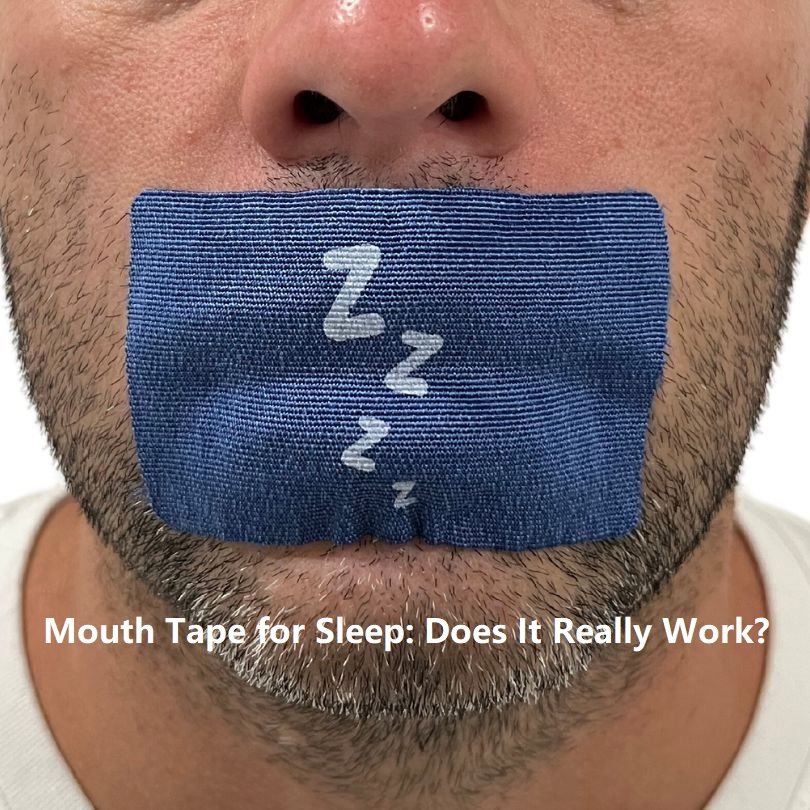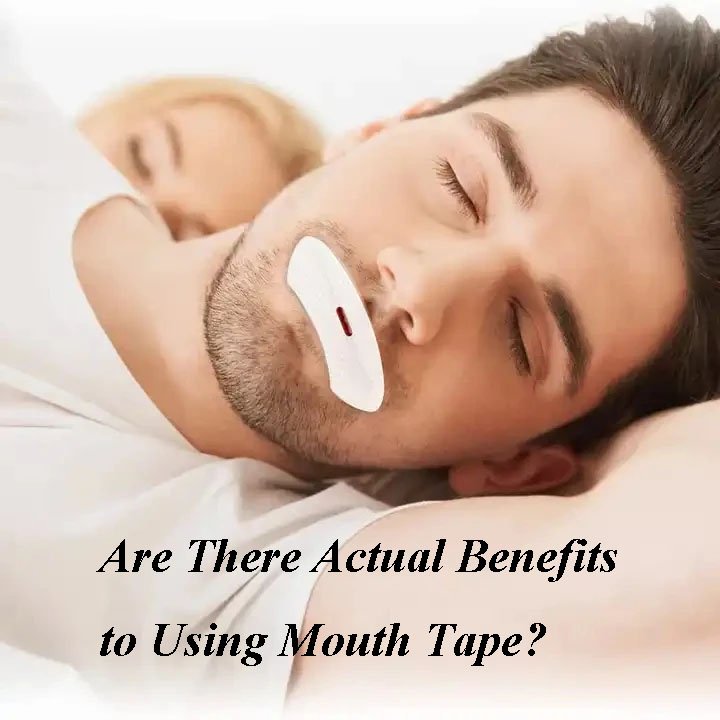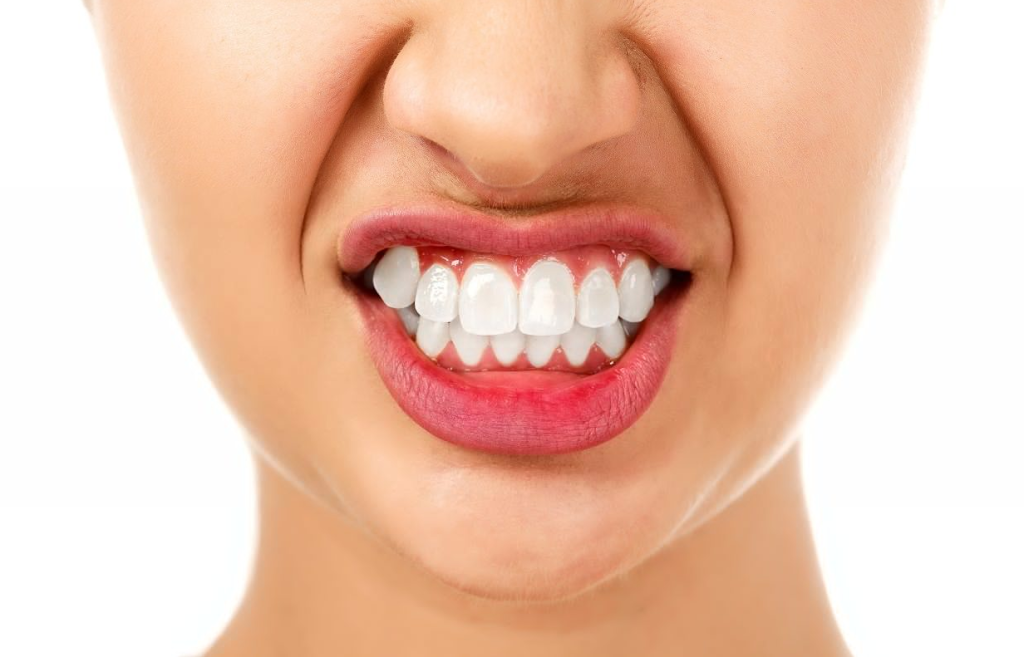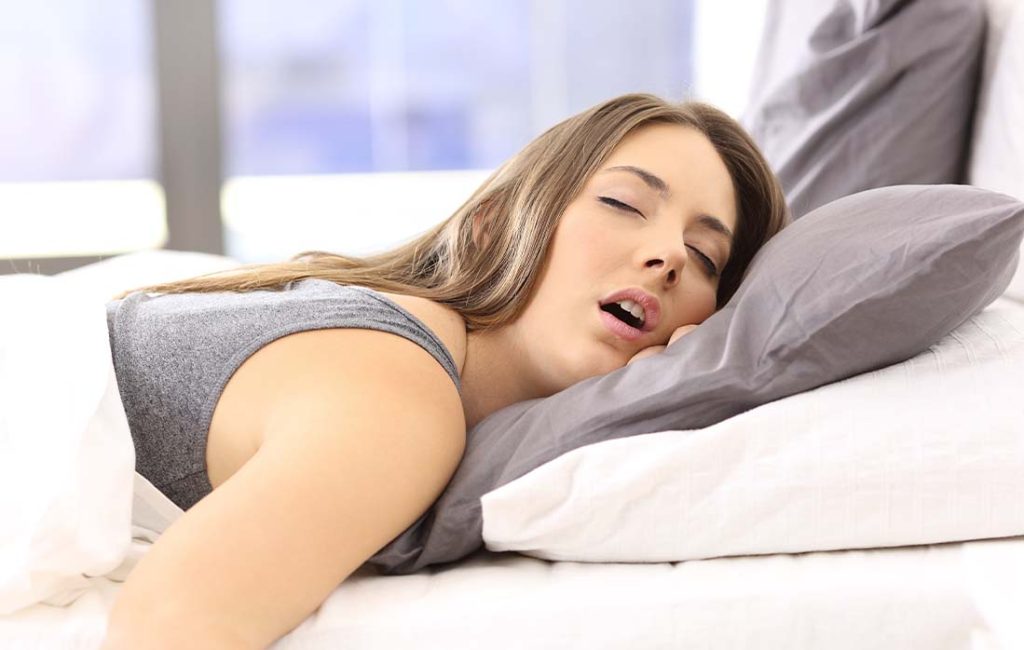What is Snoring?
Ah, snoring. A sound that can turn a peaceful night into an all-out battle for sleep. Snoring is what happens when air struggles to move through your nose or throat while you sleep. It can sound like anything from a light hum to an impressive freight train. Common reasons for snoring? Well, there’s quite a list. It could be nasal congestion, sleep position, obesity, alcohol consumption, swollen tonsils, a deviated septum, or even just the shape of your mouth. Each of these factors can get in the way of smooth airflow, and when air can’t glide through, it vibrates tissues and voila—you get snoring.
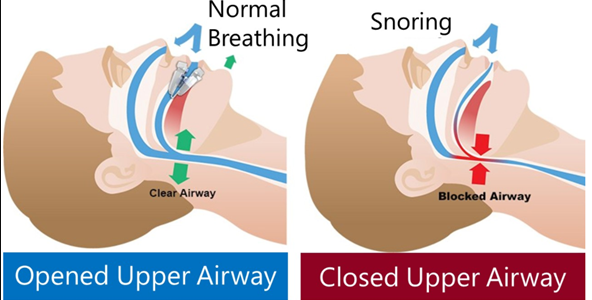
Now, that wasn’t too long, was it? Just enough to know what snoring is and why it happens—without diving into the science lecture that puts everyone to sleep (ironically). And keep in mind, our mission here is to find a solution, not just sympathize.
The Problem with Breathing with Mouth
Breathing through the mouth instead of the nose is not ideal, especially while sleeping. The nose is designed to filter, warm, and humidify the air we breathe, while the mouth lacks these functions. When we breathe through the mouth, it bypasses the natural benefits provided by the nasal passages. It can lead to a variety of problems as follows:
Dry mouth
bad breath
gum disease
disrupted sleep
increased risk of snoring
sleep apnea

Over time, mouth breathing can even affect the development of facial structure, especially in children. So, while it might seem harmless, breathing with your mouth can actually invite quite a bit of trouble.
What is Mouth Tape?
Mouth tape is a simple adhesive strip that is placed over the lips to gently encourage nasal breathing during sleep. It works by keeping the mouth closed, which helps promote better airflow through the nose. Mouth tape is used by those who want to reduce snoring, improve sleep quality, or simply break the habit of mouth breathing. It’s a small but potentially impactful tool in the battle against snoring and poor sleep.
Does Mouth Tape Work for Snoring?
Alright, let’s get to the question on everyone’s mind—does mouth tape really work for snoring? The answer, for many people, is yes. By encouraging nasal breathing, mouth tape helps reduce the chances of airway obstruction that leads to snoring. In fact, a 2020 study published in Healthcare(Basel) found that individuals who used mouth tape experienced a significant reduction in snoring frequency and intensity. It’s all about keeping the air moving smoothly, without the disruptive vibrations that cause snoring.
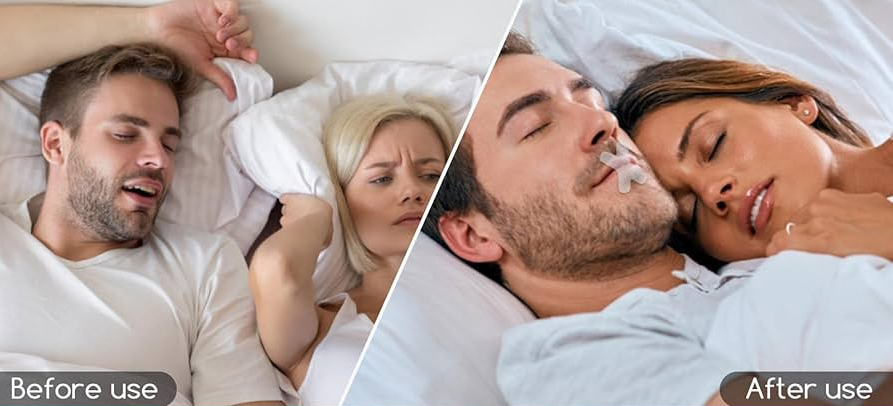
But let’s not overpromise. Mouth tape is not a one-size-fits-all solution. If your snoring is due to more severe issues, like sleep apnea or a structural problem with your airways, mouth tape might not be enough. It can help with mild to moderate snoring, but for more serious conditions, consulting a healthcare professional is key. Mouth taping works best as part of a broader strategy to improve sleep quality—one that might also include lifestyle changes, like adjusting sleep position or losing weight.
Besides effectiveness, people are also concerned about the safety of using mouth tape. Well generally it’s safe to use them, but there are, sure, some exemptions. To learn more about the safety issues of mouth tapes, please read: Is it safe to use mouth tape?
Using Mouth Tape vs Other Treatments for Snoring
When it comes to treating snoring, there are several options available, and mouth tape is just one of them. Other common treatments include nasal strips, CPAP machines, positional therapy, and even surgical interventions. Each of these has its own set of pros and cons.
Nasal strips, for instance, work by opening up the nasal passages, which can help reduce snoring caused by nasal congestion. They are easy to use but might not be effective for everyone. CPAP machines are often prescribed for sleep apnea and are highly effective, but they can be cumbersome and uncomfortable for some users. Positional therapy focuses on changing sleep positions—many people snore more when lying on their back. This can be effective but requires consistent effort to maintain the right position throughout the night.
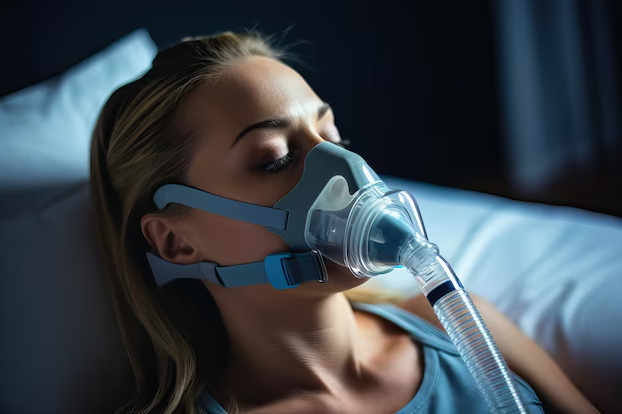
Mouth tape stands out because of its simplicity and minimal invasiveness. It doesn’t require any machinery, and it’s easy to use. However, it may not be as effective for those with underlying medical conditions like sleep apnea or significant nasal blockages. Unlike CPAP machines, mouth tape doesn’t provide direct airway support but instead encourages better habits. The choice between mouth tape and other treatments ultimately depends on the underlying cause of snoring and personal preference.
The key of using mouth tape is to select the type according to personal needs. Please check examples of various mouth tape products: Mouth Tape Archive.
Conclusion
To sum it up, snoring can be a disruptive issue, but mouth tape offers a simple and effective solution for many people. By encouraging nasal breathing, it helps reduce snoring and improve sleep quality. Fonitaniya™ offers an effective mouth tape product that consumers speak highly of, backed by over 14 years of experience providing adhesive solutions. So, if you’re tired of losing sleep over snoring, mouth tape might just be worth a try.

FAQs
How does mouth tape help with snoring?
Mouth tape helps by encouraging nasal breathing, which reduces airway obstruction and the vibrations that cause snoring.
Can mouth tape stop sleep apnea?
Mouth tape is not a cure for sleep apnea. It may help with mild cases, but consult a healthcare professional for severe sleep apnea.
Is mouth tape safe for everyone to use?
Mouth tape is generally safe for adults but not recommended for those with severe nasal congestion or certain medical conditions without consulting a doctor.
What are the side effects of using mouth tape?
Side effects can include skin irritation, discomfort, or difficulty adjusting to nasal breathing. If any issues persist, consult a healthcare professional.
Is there a difference between mouth taping and using a nasal strip?
Yes, mouth taping encourages nasal breathing by keeping the mouth closed, while nasal strips open the nasal passages to improve airflow.
Can I use mouth tape if I have a deviated septum?
It depends on the severity. Consult with a healthcare professional to determine if mouth taping is suitable for you.
What are the benefits of mouth tape compared to a CPAP machine?
Mouth tape is simple, non-invasive, and easy to use, while CPAP machines are more effective for sleep apnea but can be cumbersome.

